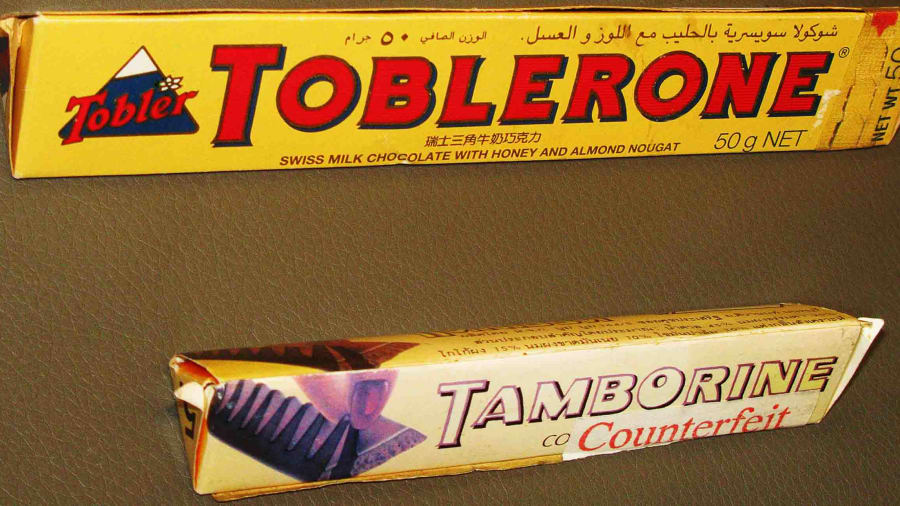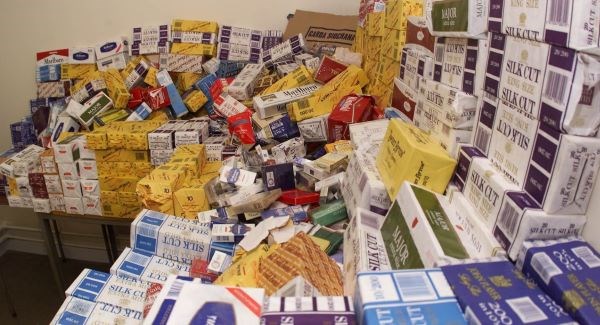Nigeria loses N9bn annually to counterfeit products
Stakeholders in the home appliance and baby care industry have lamented the increasing incidence of counterfeit products, which cost the country about N9 billion annually.While the country has also lost a whopping N200 billion annually to adulterated oil, the global economy via a cross-border trade in physical counterfeit is now $250 billion annually.
Lear More
The secret lives of Thailand’s counterfeiters
On streets in Bangkok and in some of its glistening air-conditioned malls, countless counterfeit Rolexes, DVDs, Gucci fashion accessories and other products are openly on sale.
Foreign tourists flock to Thailand’s ubiquitous street markets, fascinated by the look and feel of the high-quality counterfeit goods openly on display and the cheap prices shouted out by touts.
http://edition.cnn.com/2015/06/15/travel/thailand-counterfeiters-fake/
Lear MoreRetired NJ state prison employee charged with smuggling tobacco
A retired New Jersey state prison employee is accused of smuggling tobacco into Trenton state prison in exchange for thousands of dollars in bribes, prosecutors said.
Alan Slaton, 63, an institutional training instructor at the prison, is charged with official misconduct and accepting bribes after prosecutors said he smuggled tobacco into Trenton state prison. It is not clear if Slaton is linked to a massive tobacco smuggling ring broken up by authorities last year.
Fighting tobacco-smuggling through regional cooperation
The fight against tobacco-smuggling will intensify as a result of an agreement to establish a regional mechanism for exchanging information on illicit cigarette shipments. This was the key result of the June meeting of Task Force Tobacco which operates under EUBAM’s aegis.
This meeting was unique as, for the first time, representatives of Customs Administrations from Belarus, Georgia and Lithuania joined the Task Force meeting to share their experience with colleagues from Hungary, Poland, Romania, Moldova, Ukraine, OLAF and SELEC.
CZI engages govt to stop smugglers
The Confederation of Zimbabwe Industries (CZI) wants a company engaged by the government to enforce standards to focus more on containing the smuggling of imported goods into the country.Last month, the government engaged Bureau Veritas to verify the quality of some of the imports at the ports of entry to protect the unsuspecting consumer from harmful products under the Consignment-Based Conformity Assessment (CBCA) programme.”
https://www.newsday.co.zw/2015/06/16/czi-engages-govt-to-stop-smugglers/
Lear MoreUS curbs: Nestle hints at counterfeit Maggi
Caught in a regulatory mess, Nestle India said most of the Maggi products rejected by the US food regulator for import in January were not exported from India, even as it claimed that some of them were not even manufactured by it though they were found carrying labels of Nestle India as manufacturer.
Hinting at the possibility of counterfeiting, a Nestle spokesperson claimed, “We have checked the US FDA site and also find that some of the rejections are for products that are not manufactured by us in India, but the label states the manufacturer as Nestle India. Clearly, these are not our products and we have not been informed of any such rejection of our consignments.”
Lear MoreThe Dangers of Fake Counterfeit Makeup Ingredients In Cosmetics
Buyer beware! Here’s something every makeup lover needs to know!
If you haven’t heard, retailers selling fake cosmetics are running rampant all over the web. Counterfeit beauty products may sound innocent at first. After all, who wouldn’t jump at the chance to get a great deal on their favorite high-end cosmetics? But there’s a serious catch to buying a so-called “discounted” designer item.
F for food, F for fake: How FSSAI tests adulteration
Times ofIndiaHe grasps two test tubes in his hand, each with a yellow powder at its base, and asks us to look carefully, as he pipettes a few ml of hydrochloric acid in each tube. The first tube turns a murky yellow, the other settles into a uniform band of bright magenta.”The adulterated turmeric turns magenta,” says Srinivas, a food analyst at the Food Safety and Standards Authority of India (FSSAI)’s Combined Food and Drugs lab, situated in a crowded industrial area in Delhi.
Lear MoreKaren Millen fight stops £2.6m in online counterfeit sales
Fashion retailer Karen Millen has led an international anti-counterfeit campaign that claims to have stopped the sale of over £2.6m worth of fake garments using the brand’s name.
The company said it has worked closely with onlinemarketplaces including eBay, Amazon, Taobao and Alibaba, as well as other retailers. It has also targeted parts of the supply chain, such as the factories manufacturing imitations.

Ireland a ‘great place for smugglers to operate’
Ireland is a target for international crime gangs despite the best efforts of the Revenue Commissioners, a retailers’ group has claimed. Retailers Against Smuggling, which represents 3,000 independent shops, said that Revenue’s most recent defaulters’ list, published on Tuesday, highlighted this.
http://www.irishexaminer.com/ireland/ireland-a-great-place-for-smugglers-to-operate-336457.html
Lear More


